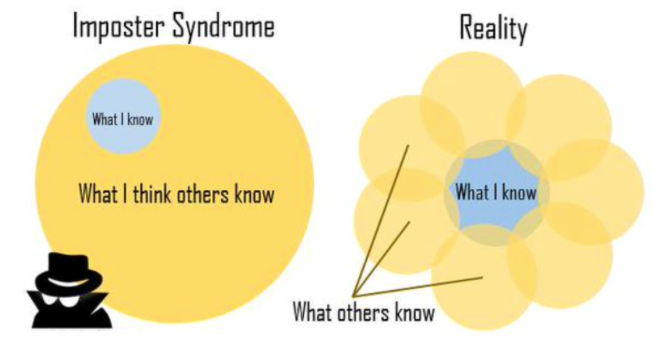Remember when we explored if we’d quit something before it could go wrong? How you’ve ended a relationship before you could get hurt? We identified these as examples of self-sabotage, which can strike at any moment when we feel that things are gaining momentum in a positive way. But what happens when you achieve the success you’ve always wanted and now, instead of joy, you feel doubt and dread, fearing it is too good to last? Because of this fear, perhaps you desire to remain safe in your career trajectory, creating your own glass ceiling because it pays the bills and supports stability. You choose comfort rather than taking risks that would allow you to reach your fullest potential. Gay Hendricks calls putting on the breaks when our success has exceeded what we thought it could as The Upper Limit Problem, described in detail in his book “The Big Leap.”
Signs you have an Upper Limit Problem
It’s understandable that we struggle with success in thinking it’s too good to be true. Awareness of our reactions to success and the resulting negative thoughts and unconscious self-sabotaging behaviors can be considered a first step in recognizing the problem and identifying viable solutions! Here are some signs that you might be experiencing an Upper Limit Problem:
- You avoid taking risks
- You can’t slow down
- You can’t enjoy your successes due to fear and doubt
- You prevent change in wanting stability
- You love your comfort zone
- You feel uncomfortable with too many successes at once
- You get stressed and sick when experiencing rapid growth
Smashing through your Upper Limit Problem
For many, illness in response to stressors or fear of success in a big part of their Upper Limit Problem. So now that you know what you are experiencing, what can you do about it? Here are some ideas that might help:
- Identify positive affirmations such as “I’m right where I should be.” “I’ve worked hard for this success.” “I deserve good things.”
- Engage your supports. Talk to others you trust about the stress you are feeling in the face of your achievements.
- Practice mindfulness. Engage in mindfulness and meditation practices to reinforce positive vibes and refocus.
- Slow down. Take breaks for self-care and rest up to prevent illness.
By recognizing the signs of your Upper Limit Problem and exploring possible responses, you can remove self-sabotaging behaviors and fully surrender to your success, allowing yourself to enjoy your accomplishments and continue to thrive in the possibilities of your future.
“The goal in life is not to attain some imaginary ideal; it is to find and fully use our own gifts.”
~Gay Hendricks
Khara Croswaite Brindle, MA, LPC, ACS, is a Licensed Professional Counselor in the Lowry Neighborhood of Denver, Colorado. She received her Masters Degree in Counseling Psychology from the University of Denver with a focus on community based mental health. Khara has experience working with at-risk youth and families, including collaboration with detention, probation, and the Department of Human Services. Khara enjoys working with young adults experiencing anxiety, depression, trauma, relational conflict, self-esteem challenges, and life transitions.





